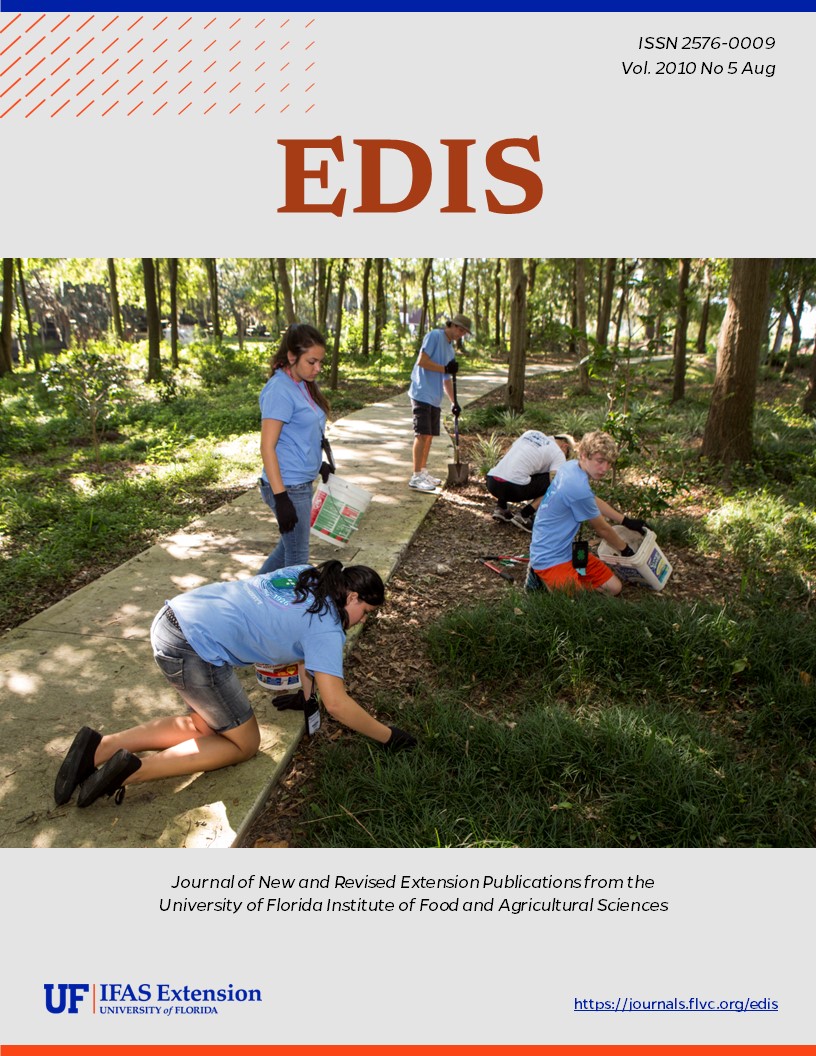Abstract
EENY 478, a 5-page illustrated fact sheet by Geoffrey R. Gallice, is part of the Featured Creatures collection. It describes this spectacular member of the Saturniidae family — synonymy, distribution, hosts, and economic importance. Includes references. Published by the UF Department of Entomology and Nematology, July 2010.
References
Boettner GH, Elkinton JS, Boettner CJ. 2000. Effects of a biological control introduction on three nontarget native species of Saturniid moths. Conservation Biology 14: 1798-1806. https://doi.org/10.1111/j.1523-1739.2000.99193.x
Britton D. (August 2009). Hyalophora cecropia: A Life Cycle Photo Journal, Part 2: The Caterpillar: In Changes of Color and Contrast. A Butterfly in Transformation. http://lifecycle.onenessbecomesus.com/caterpillar.htm (8 July 2010).
Covell Jr CV. 1984. A Field Guide to Moths of Eastern North America. Houghton Mifflin Co. Boston, MA. 496 pp.
Heppner JB. 2003. Lepidoptera of Florida. Arthropods of Florida and Neighboring Land Areas Vol. 17. Florida Department of Agriculture and Consumer Services, Division of Plant Industry, Gainesville, FL.
Passonneau JV, Williams CM. 1953. The moulting fluid of the cecropia silkworm. Journal of Experimental Biology 30: 545-560. https://doi.org/10.1242/jeb.30.4.545
Powell JA, Opler PA. 2009. Moths of Western North America. University of California Press, Berkeley and Los Angeles, California. 383 pp. https://doi.org/10.1525/9780520943773
Stevenson A. (October 2008). Probing question: why are moths attracted to light? Research Penn State. http://www.rps.psu.edu/probing/moths.html (8 July 2010)
Williams CM. 1952. Morphogenesis and the metamorphosis of insects. Harvey Lect. 47: 126-155.

